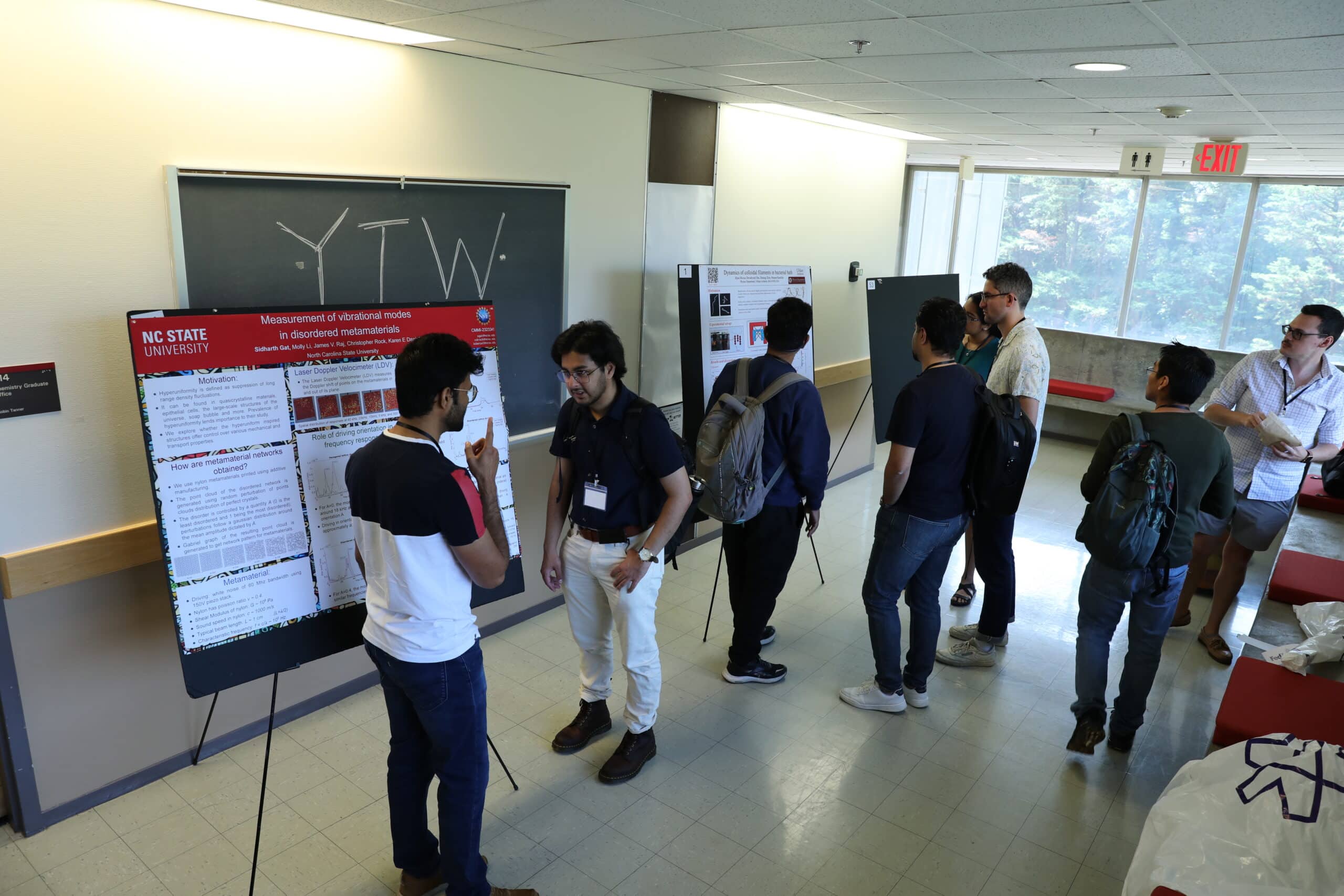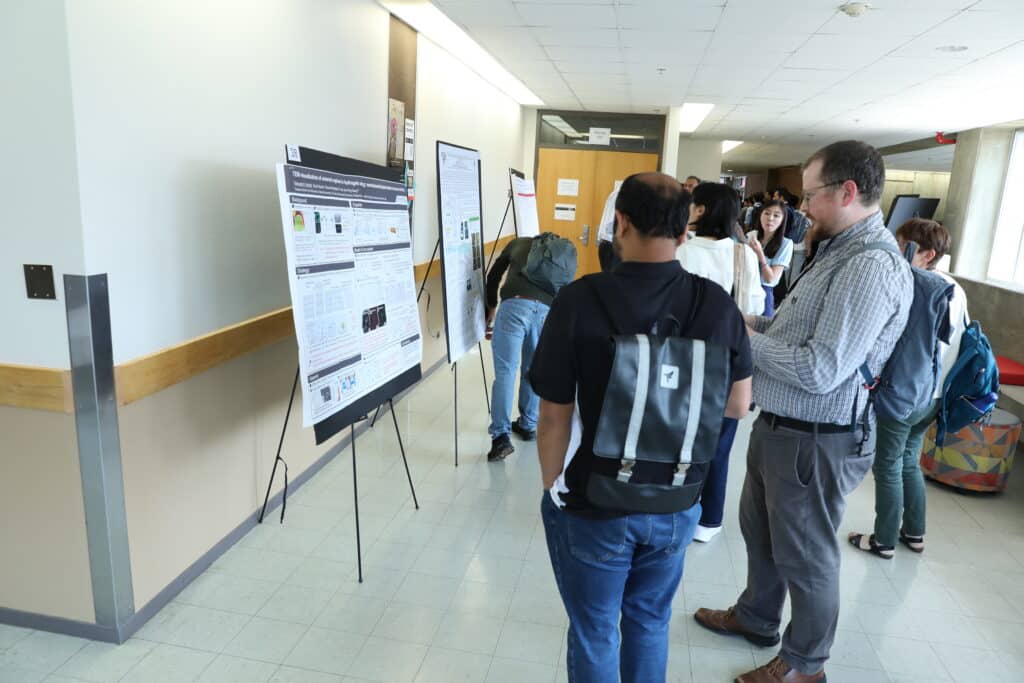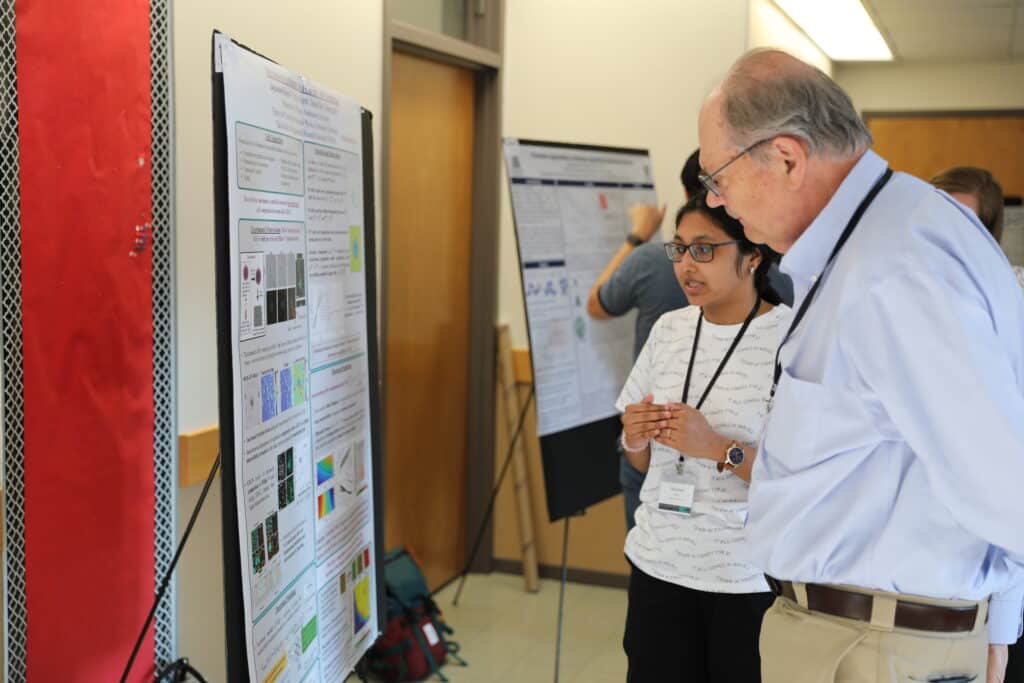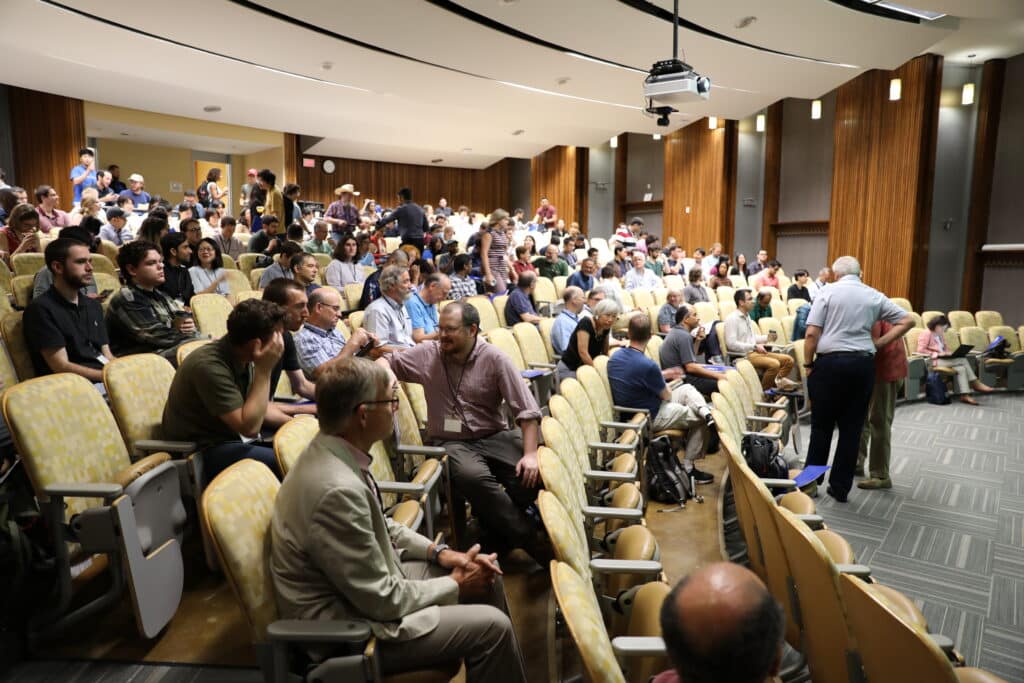
Liquid-Like Molecular Dynamics Power Solid Battery Materials
Unusual atomic vibrations in a crystalline structure explain potential solid-state battery material’s superionic transport abilities
Between The Young Investigators Workshop and Duke Soft Matter Day, the summer saw collaborations in the field that spanned North Carolina ahead of ISMC 2024.

Ahead of the 8th International Soft Matter Conference, the first such conference for the U.S., institutions in The Triangle helped organize events specifically focused on the field to strengthen the relationship between researchers across universities.
Duke Soft Matter Day and the Young Investigators Workshop at NC State University were events held over the summer designed for students, postdocs and faculty that were guided by recognized experts with a strong focus on rising challenges in soft matter. The emergence of the field is still relatively new, with its inception taking place in the early 1970s, but researchers have already been uncovering ways to use these types of materials to aid climate, sustainability and medicine.

The Young Investigator’s Workshop was part of a larger schedule that headlined ISMC 2024, and it was a specialized event aimed at building working relationships, exchanging research knowledge, and developing skills among early-career researchers and students in the field of soft matter science.
Held at NCSU’s Dabney Hall from July 26-28, the workshop immersed participants in a comprehensive learning experience that covered a broad range of sub areas within soft matter research, including active matter, biological systems, granular materials, colloidal systems, polymers and a lot more.
Bavand Keshavaraz and Michela Geri, assistant professors in the Duke MEMS department and members of the workshop’s organizing committee, said the event’s impact goes well beyond the state of North Carolina.

The implications of maintaining the momentum for events like the Young Investigators Workshop run deep, as it offered students and postdoctoral researchers exposure to advanced topics in soft matter through tutorial talks by leading experts. This ultimately helps them deepen their understanding and stay updated on the latest research trends.
Events like this summer’s workshop play a crucial role in nurturing the next generation of soft matter scientists. By providing students and postdocs with the tools and knowledge they need to succeed, the community ensures a continuous influx of skilled researchers who can drive the field forward.

Duke Soft Matter Day followed the workshop, featuring a robust schedule of guest speakers, poster sessions for students and breakout groups that even included lab tours. What’s more, experts from institutions across the globe participated, like David Weitz at Harvard University, Philip Pincus from UC Santa Barbara, Jian Ping Gong from Hokkaido University, Eugenia Kumacheva at the University of Toronto, and Andrea Liu from University of Pennsylvania.
Michael Rubinstein, the Aleksandar S. Vesic distinguished professor in the Duke MEMS department and member of the organizing committee, celebrated the event as an important inflection point.

Both events tie together a summer focused on the frontiers of soft matter science, with ISMC 2024 closing out July in the Raleigh Convention Center. Institutions in the Research Triangle will continue fostering an environment for researchers, students and career professionals to engage in events like the ones showcased this year.
Both events saw significant participation across the summer of soft matter
July 26-28, 2024
Monday, July 29, 2024 – An interactive symposium on frontiers of soft matter, DSMD is a collaboration between Duke University and the International Program Committee of ISMC 2024.

Unusual atomic vibrations in a crystalline structure explain potential solid-state battery material’s superionic transport abilities

Stabilizing the glassy state of materials using rare instrumentation unlocks a new line of research for perovskites

Experts from around the world gathered at Duke for the first Advanced Multifunctional Metamaterials Workshop to shape the future of the field